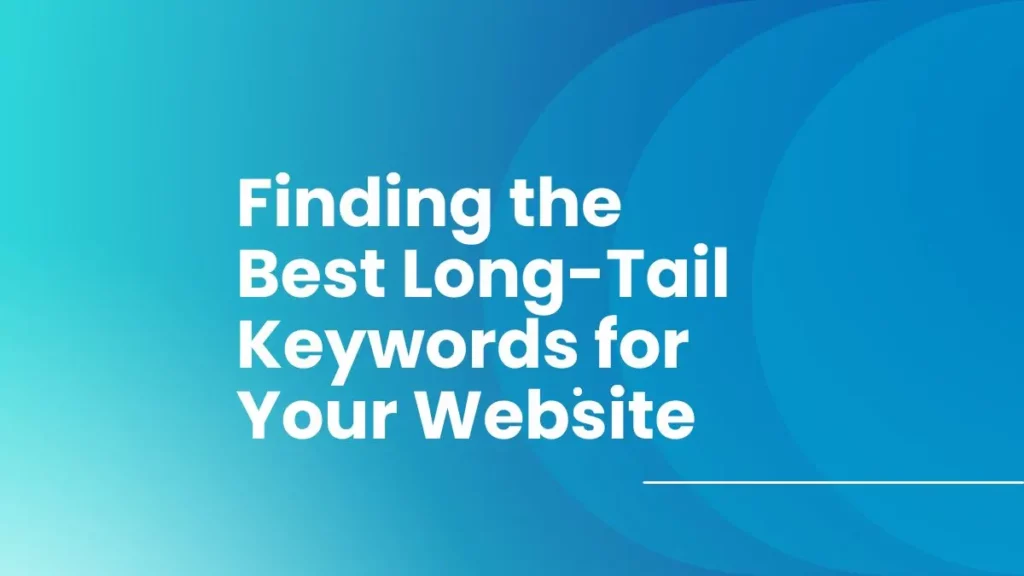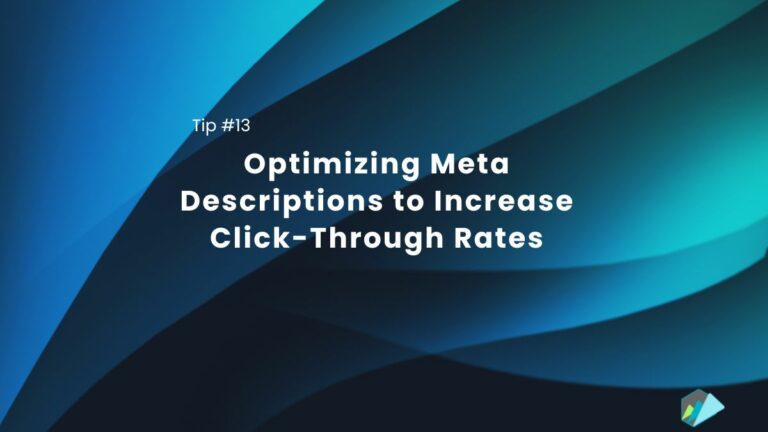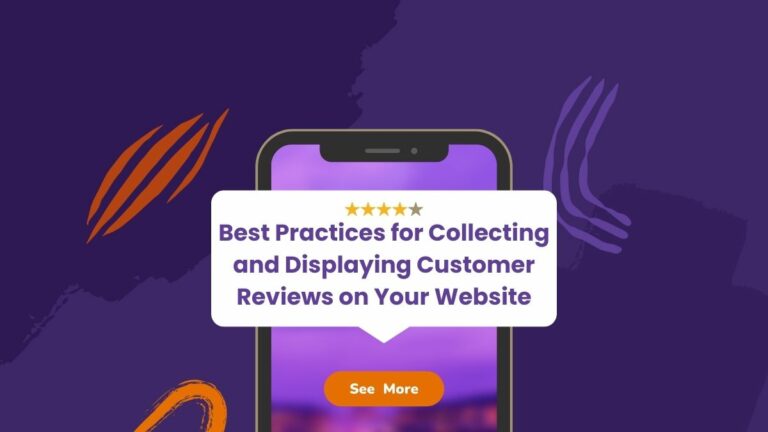
Finding the Best Long-Tail Keywords for Your Website
Long-tail keywords can help you attract relevant traffic and boost the visibility of your website. Unlike short-tail keywords, which are broad and generic, long-tail words target a specific niche or topic—making them an excellent choice for businesses trying to reach their audience through search engines.
Using long-tail keywords can increase your chances of being found by search engines and improve your rankings.
What are Long-Tail Keywords?
Long-tail keywords are phrases that consist of three or more words and tend to be longer than broad or generic. They are also more specific and can be used by businesses to target a niche audience. Long-tail keywords tend to have lower competition than short-tail keywords and can help you rank higher in search engines.
Long-tail keywords are easier to rank because they have less competition and attract more relevant traffic than short-tail keywords. In addition, long-tail keywords tend to have higher conversion rates because they attract people more likely to be interested in your products or services.
Benefits of Using Long-Tail Keywords
Long-tail keywords can provide many benefits for your website or business. Here are just a few of them:

Increased relevance and specificity
An effective way to improve your website’s traffic is using long-tail keywords. Longer search terms are more specific and relevant, meaning people searching for those phrases are often interested in the products or services offered. This can increase the chances of converting visitors into customers or subscribers.
Lower competition
There is less competition for long-tail keywords than for short ones because people use them when searching for something specific. In addition, these keywords attract customers who are more likely to purchase. Since those searches rank high in search engine results pages (SERPs), it is easier for sites that use such keywords to outperform the competition.
Higher conversion rates
Long-tail keywords often attract visitors who are more likely to convert because they’re a better fit for your products or services. Because people searching for information specific to your business or niche will often be in a mindset closer to taking an action you may want them to take—such as making a purchase.
Improved visibility in search results
Using long-tail keywords on your website can help you improve its visibility in search results. Because they are more specific, these searches will tend to return websites relevant to the user’s original query.
How to Find Long-Tail Keywords
Now that you understand the benefits of using long-tail keywords, it’s time to explore how to identify relevant ones for your website or business. Here are some tips for doing so:
Keyword research tools
You can find keywords using keyword research tools like Google Keyword Planner, SEMrush, or Ahrefs. These help you generate a list of related long-tail words for any broad term in your niche. You can then use the most relevant keywords to target your site’s content, optimizing it that way.
Brainstorming and analyzing customer language
One way to find long-tail keywords is by brainstorming and analyzing customer language. Consider the phrases your customers use when describing your products or services—these phrases can give valuable insight into what people search for in similar situations.
Analyzing competitor keywords
You can also find these keywords by analyzing the keywords your competitors are targeting. Use tools like SEMrush or Ahrefs to see which keywords competitor sites rank for, then identify any long-tail keyword variations that work well for you.
Best Practices for Using Long-Tail Keywords
Using long-tail keywords in your content and website should be used strategically through natural or paid searches.
How to use keywords in your content and website
When creating content with long-tail keywords, it’s essential to implement them naturally and strategically. Include keywords in your page titles, meta descriptions, and header tags. Include them in the body of your content but avoid overusing them; Google gives more weight to longer keyword phrases than single words. Include them in rich snippets, like your Twitter and Facebook bios. Use the keywords you want to rank for in link building but avoid overusing them.
Tips for using long-tail keywords without keyword stuffing.
Keyword stuffing is using your target keywords excessively or unnaturally in your content to manipulate search engine rankings. Instead, use long-tail keywords naturally and strategically in your content. Use them sparingly, but make sure they’re there when appropriate. Focus on providing high-quality content that is valuable to your readers.

Common Mistakes to Avoid
The use of keywords is essential, but it’s important to avoid these common mistakes:
Ignoring search intent and targeting irrelevant keywords
When doing keyword research, consider the intent of your potential customers. Also, avoid broad or unrelated keywords that are hard to rank for.
Focusing on volume rather than relevance
Although targeting keywords with high search volume is important, you should also focus on relevance. For example, targeting particular keywords can attract more relevant traffic and lead to higher conversion rates than targeting broad generic ones.
Neglecting to update and refresh keyword strategies over time
It is essential to update and refine your keyword strategies consistently. As your business evolves, so will its target audience; consequently, the most relevant keywords may also change over time.

Closing Notes
Long-tail keywords are effective when targeting specific niches and improving content relevance. Using best practices like listing long-tail keywords, you can incorporate this naturally into your website’s content.
When implementing keywords into your website’s content, remember that keyword stuffing and neglecting to update your strategy are two of the most common things that could be improved.
However, by using long-tail keywords effectively—and updating them as necessary over time—you can attract more relevant traffic, improve a visitor’s experience on your site by providing information they’re looking for when they arrive (rather than unrelated or duplicate content), and increase their likelihood of converting into customers.
Digital Results is happy to help with your digital marketing needs. Just get in touch for a free 30-minute consultation—one of our experts will walk through this analysis process and identify any potential issues that may be holding back your search engine optimization (SEO).
Ready to Grow Your Search Engine Results?
Let Digital Results assist you in your SEO strategy and help
deliver the search engine results you need.






